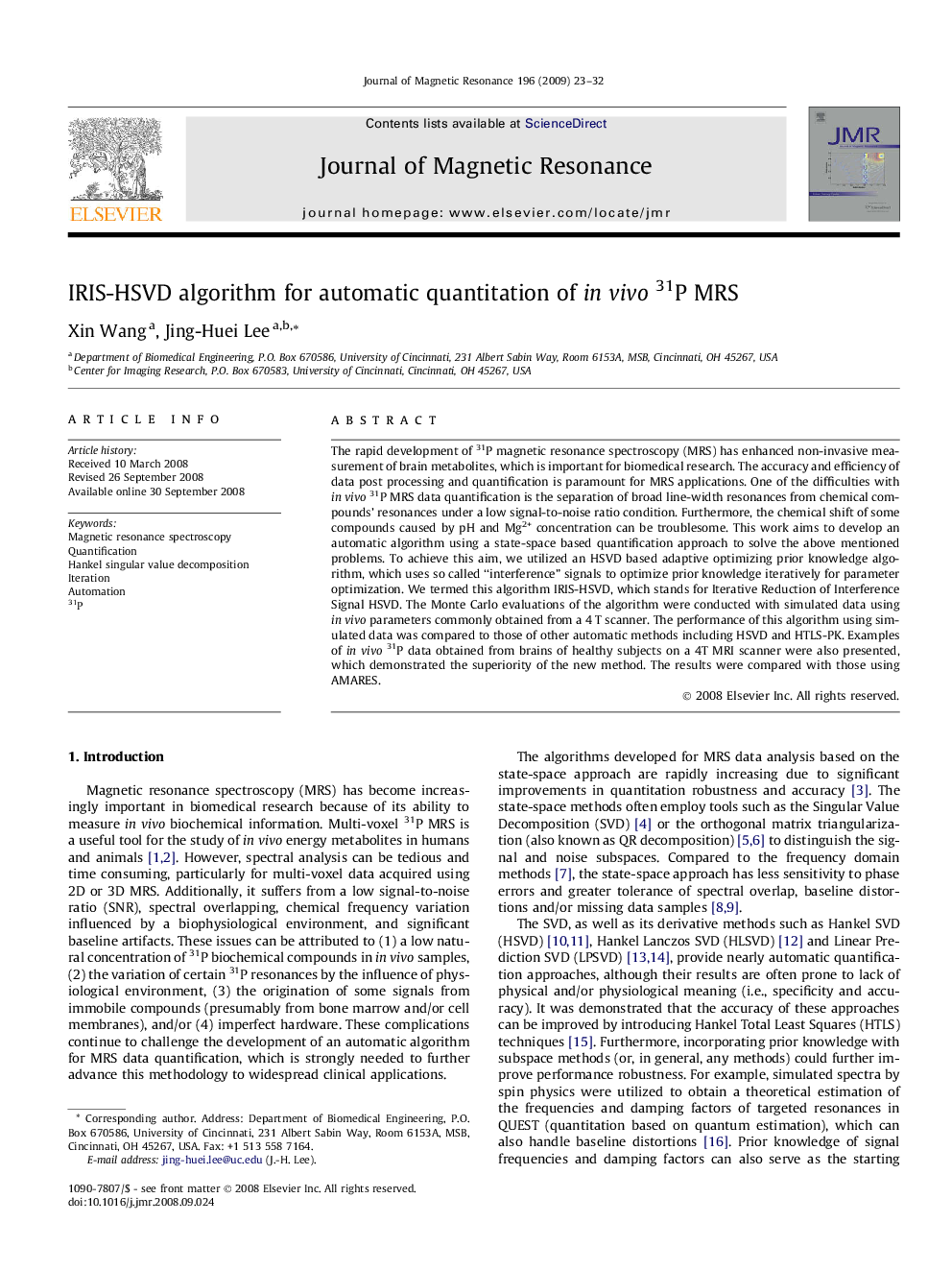| Article ID | Journal | Published Year | Pages | File Type |
|---|---|---|---|---|
| 5406959 | Journal of Magnetic Resonance | 2009 | 10 Pages |
Abstract
The rapid development of 31P magnetic resonance spectroscopy (MRS) has enhanced non-invasive measurement of brain metabolites, which is important for biomedical research. The accuracy and efficiency of data post processing and quantification is paramount for MRS applications. One of the difficulties with in vivo 31P MRS data quantification is the separation of broad line-width resonances from chemical compounds' resonances under a low signal-to-noise ratio condition. Furthermore, the chemical shift of some compounds caused by pH and Mg2+ concentration can be troublesome. This work aims to develop an automatic algorithm using a state-space based quantification approach to solve the above mentioned problems. To achieve this aim, we utilized an HSVD based adaptive optimizing prior knowledge algorithm, which uses so called “interference” signals to optimize prior knowledge iteratively for parameter optimization. We termed this algorithm IRIS-HSVD, which stands for Iterative Reduction of Interference Signal HSVD. The Monte Carlo evaluations of the algorithm were conducted with simulated data using in vivo parameters commonly obtained from a 4Â T scanner. The performance of this algorithm using simulated data was compared to those of other automatic methods including HSVD and HTLS-PK. Examples of in vivo 31P data obtained from brains of healthy subjects on a 4T MRI scanner were also presented, which demonstrated the superiority of the new method. The results were compared with those using AMARES.
Related Topics
Physical Sciences and Engineering
Chemistry
Physical and Theoretical Chemistry
Authors
Xin Wang, Jing-Huei Lee,
